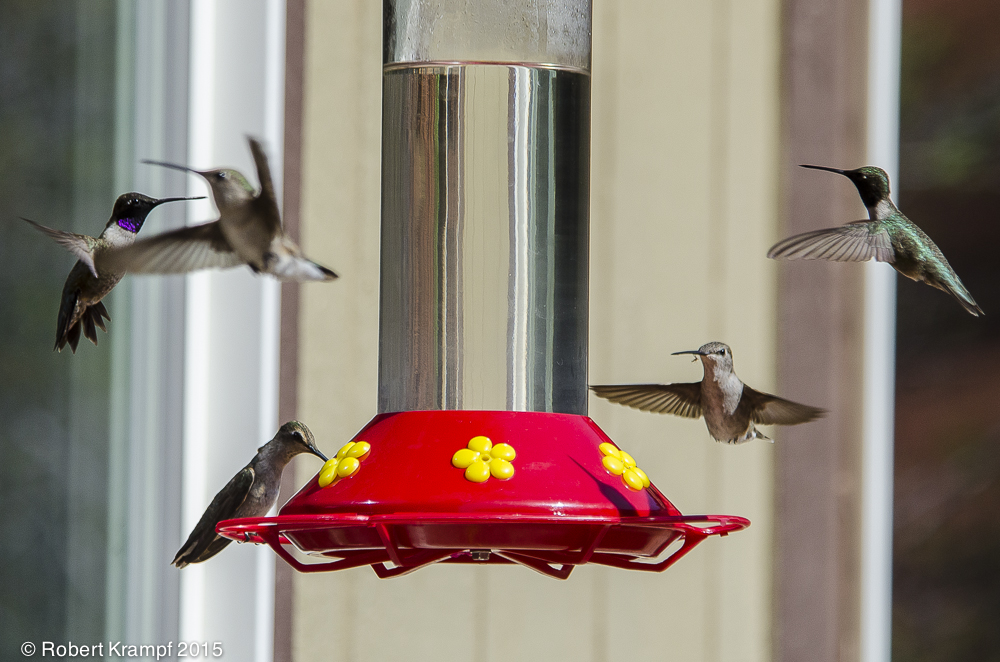
We enjoy the hummingbirds that visit our feeders. I am trying to find the mixture of sugar and water that they like the best.
Each day, I put out four feeders with different amounts of water and sugar. At the end of each day, I measure to see how much of each the hummingbirds drank. Which of the following is NOT an important part of this experiment?
-
One of the feeders should only contain water, with no sugar.
No. This IS an important part of the experiment. The feeder without any sugar is the control. If the hummingbirds drink just as much pure water, it would indicate that the sugar is not important. -
The feeders should be placed randomly every day.
No. This IS an important part of the experiment. If you always put the same mixture in the same location, the results may be because the birds like that location instead of because they like the amount of sugar. -
I should repeat this experiment every day for several weeks.
No. This IS an important part of the experiment. The more times you repeat the same test, the more likely you are to get accurate results. -
The different mixtures should be colored different colors with nontoxic food coloring.
Yes. This is NOT an important part of the experiment. It would add a second variable to the experiment, which is a bad thing. You want everything to be the same for each sample, with the only difference being the amount of sugar. If you used different colors and different amounts of sugar, you would not know whether the results were due to the color or the sugar.
Click to see which state standards this question tests, and which of my videos, experiments, and other resources support that topic.
Florida
SC.5.N.1.4 Identify a control group and explain its importance in an experiment.
| Bacteria and Antibiotics | video, ClosedCaptions |
| Testing a Leaf for Starch | video, ClosedCaptions |
| Review Scientific Process-1 | practice |
| Review Scientific Process-2 | practice |
| Review Scientific Process-9 | practice |
| Review Scientific Process-11 | practice |
SC.7.N.1.4 Identify test variables (independent variables) and outcome variables (dependent variables) in an experiment.
| Floating Cups | video, checked |
| Testing for Tannic Acid | video |
| Review Scientific Process-1 | practice |
| Review Scientific Process-2 | practice |
| Review Scientific Process-9 | practice |
| Review Scientific Process-11 | practice |
Utah
NGSS
3-5-ETS1-3 Plan and carry out fair tests in which variables are controlled and failure points are considered to identify aspects of a model or prototype that can be improved.
| What is Science? | video, ClosedCaptions |
| Review Scientific Process-2 | practice |
| Review Scientific Process-7 | practice |
| Review Scientific Process-9 | practice |
| Review Scientific Process-10 | practice |
| Review Scientific Process-11 | practice |
| Review Scientific Process-1 | practice |
